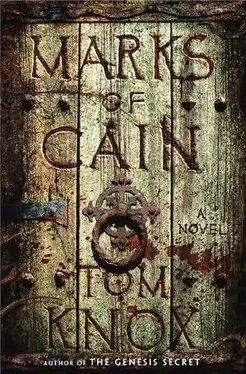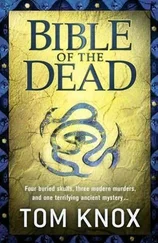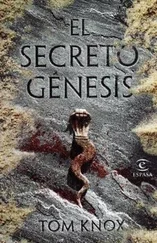Tom Knox - The Marks of Cain
Здесь есть возможность читать онлайн «Tom Knox - The Marks of Cain» — ознакомительный отрывок электронной книги совершенно бесплатно, а после прочтения отрывка купить полную версию. В некоторых случаях можно слушать аудио, скачать через торрент в формате fb2 и присутствует краткое содержание. Жанр: Триллер, на английском языке. Описание произведения, (предисловие) а так же отзывы посетителей доступны на портале библиотеки ЛибКат.
- Название:The Marks of Cain
- Автор:
- Жанр:
- Год:неизвестен
- ISBN:нет данных
- Рейтинг книги:4 / 5. Голосов: 1
-
Избранное:Добавить в избранное
- Отзывы:
-
Ваша оценка:
- 80
- 1
- 2
- 3
- 4
- 5
The Marks of Cain: краткое содержание, описание и аннотация
Предлагаем к чтению аннотацию, описание, краткое содержание или предисловие (зависит от того, что написал сам автор книги «The Marks of Cain»). Если вы не нашли необходимую информацию о книге — напишите в комментариях, мы постараемся отыскать её.
The Marks of Cain — читать онлайн ознакомительный отрывок
Ниже представлен текст книги, разбитый по страницам. Система сохранения места последней прочитанной страницы, позволяет с удобством читать онлайн бесплатно книгу «The Marks of Cain», без необходимости каждый раз заново искать на чём Вы остановились. Поставьте закладку, и сможете в любой момент перейти на страницу, на которой закончили чтение.
Интервал:
Закладка:
'Like Campan again?'
'Campan, yes. Bigorre. Many other villages.' Eloise was talking more quickly now. 'Some of the forbiddings on the Cagots were strange, so strange. We were not allowed to walk barefoot, like normal peasants, and this gave rise to the legend that we all had webbed toes. Cagots could not use the same baths as the other people. We were not allowed to touch the walls of bridges. Madness, non? And when we went about, we had to wear a goose's foot, la patte d'oie, pinned to our clothes. Symbolical of the webbed foot. The mythical deformity.'
'Just like the Jews and the yellow star. In the war,' said Amy.
'D'accord. And one of the other ways the Cagots were treated as different and inferior was in the churches. In the churches, we had to use our own doors, on the left of the main doors. The small doors you saw? Yes! We also had our own fonts — the benitiers. Marked with the foot! And we were given communion on the end of very long wooden spoons, so the priests would not even have to touch us. To touch the dirty people.'
'But why?' asked David. His tea was finished. He wanted more tea, he wanted food, he wanted something to distract him. The pain of the girl was bringing to the surface his own subterranean grief.
'Eloise, why did the Cagots get treated like this? Why were your people so oppressed?'
The girl tilted her head, with a teenage moue of distaste.
'No one knows this, mmm? No one is quite sure why Cagots were so mistreated. Peasants at the time said Cagots were psychotique. We were certainement regarded, as you know, inferior, as tainted and polluted. Infectious.'
'Were Cagots…killed?'
'Oui oui. On occasions, the bigotry was brutal. Very brutal. In the early eighteenth century a rich Cagot in Les Landes was caught using the font reserved…for non-Cagots — and his hand was chopped off and nailed to the church door.'
Amy winced; Eloise continued.
'Shocking, non? Another Cagot, who dared to farm his fields, which was totally forbidden, he had his feet pierced with the hot iron spikes. If there was any crime in a village, the Cagot was blamed. Some were actually burned at the stake. Even in death, these discriminations persisted — the Cagots were buried in their own cemeteries.'
David turned to Amy: she nodded. Arizkun.
Amy asked: 'But where did your people come from? Who were they?'
'The provenance is not clear, because the Cagots themselves have largely vanished…from the records. During La Revolution, the laws against Cagots were, they say, abandoned — in fact I think many Cagots destroyed the archives, theystole and burned any documents that proved their ancestry. To get rid of the shame! After 1789, we Cagots slowly…assimilated. Many of us changed surnames. Most of us slowly died out. There were the…problems having children.'
David looked at the girl. He thought of his grandfather: changing identity, Basque to Spanish. More ancient shame.
Amy was still questioning the girl.
'Are there any theories? About the descent of the Cagots?'
'Naturellement. But the different contemporary accounts are so very confusing. They cannot even agree on what we are meant to look like! Some describe us as being short, dark and even fat. And suffering goitres and cretinism. Others say we are blonde and, you know, very blue eyed. A man, a scholar, named Michel wrote a book about this — L'Histoire des Races Maudites.'
Amy interrupted: 'The History of…the Cursed Races?'
'Oui oui. In 1847. It was one of the first studies. Michel found at least ten thousand Cagots still scattered across Gascony and Navarre, still suffering, still excluded…' Eloise stood up and took her mug to the sink. She washed it, in a lacklustre manner, talking the while. 'Since Michel, some other historians have tried to solve the great Cagot mystery, despite the French not wanting to talk about us. One theory is that we were lepers — that would explain the rules against Cagots touching anything used by non-Cagots — another that we had some contagious mental sickness. However, this theory is not good — because many other books describe us as being healthy, and robust. And intelligent. As I hope you can see? We are not lepers! We are dark. We are not lepers, we are not mad.'
David nodded.
'Of course.'
Eloise went on.
'I believe we are, maybe, descendants of Moorish soldiers left over from the eighth-century Muslim invasion of Spain and of France. That's why some people called us Les Sarasins. I know my family is very dark.' She paused. 'They were very dark. But we may never know now. It is too late, is it not? No one here likes to talk about us. There may only be a few of us left. Maybe my family was the only…purebred Cagot family…that can trace its ancestry. In the world.'
'And the name. Cagot?'
'Dogs of the Goths? That's what some say. I believe the Cagot name is a very basic insult. The dirty people. The shit people. From caca or cack. You see now? You see why we Cagots tried to hide away, to assimilate…'
Amy exhaled. 'The last of the Cagots. Just remarkable.'
'Yes.' Eloise closed her eyes momentarily. 'But this amazing story, it made my father and my mother…it made them killed.'
David wanted to ask the obvious but question: why would anyone want to kill the Cagots now? But the question, and the logic behind it, was simply too brutal for the query to be posed.
His dilemma was resolved by a noise. Eloise's grandmother, in her cardigan and her tartan slippers, was in the doorway.
'Grandmere?' Eloise was gesturing her concern.
The woman raised a frail hand. She was staring at David. She said:
'I know why you are here, Monsieur Martinez. I knew your father.'
19
He found it hard to look at Madame Bentayou. Finally, he asked, 'How did you know him?'
The old woman sat down at the kitchen table, her hands embracing an empty mug. 'I met him here in Gurs. Fifteen years ago.'
'You mean when he was killed…with my mother?' David felt the pounding of his blood.
'I can tell you where they both died, if you want to know. It was a few minutes from here, by the camp.'
The cat had come into the kitchen; it stalked to the saucer and began lapping at the sickly milk.
'The camp?'
The grandmother shrugged wearily. David asked: 'Please, can you show me?'
There was a tenderness in her reply: 'I can show you.'
It was a ten-minute walk through the leafy desolation of neglected suburbia, past an ugly church, past the half-hearted brasserie, and down a long straight road. They approached the old, nettly, rusty brown railway track — and crossed nervously, as if they all feared a train — though the track had obviously been derelict for decades. It seemed unnaturally flat. David wondered why the whole area felt quite so dead. So bleak and shunned.
Black insects whirled in the cooling twilight, as they crossed the open concrete and gravel, by the looming crucifix. Madame Bentayou, still in her tartan slippers, sat on the wooden bench next to her granddaughter. David remained standing, and asked the older Cagot woman: 'So…this is the camp? The cross? What happened here?'
Madame Bentayou waved a weary hand, indicating the vacant acres of weeds, and grey concrete footings.
'It was a Nazi camp. A concentration camp.'
She fell silent.
David gazed around. So that was it: that explained the desolation of the little town — no one wanted to live here any more. It was poisoned by its grievous history, like an inner-city district known for a murder house, a place where the police find bodies. You don't want to live there.
The old woman went on, 'The Nazis occupied…the southwest corner of France, right up to the Spanish border. The border with Vichy, the puppet France of Petain, was a hundred miles east. This was the main Nazi camp in southwest France.'
Читать дальшеИнтервал:
Закладка:
Похожие книги на «The Marks of Cain»
Представляем Вашему вниманию похожие книги на «The Marks of Cain» списком для выбора. Мы отобрали схожую по названию и смыслу литературу в надежде предоставить читателям больше вариантов отыскать новые, интересные, ещё непрочитанные произведения.
Обсуждение, отзывы о книге «The Marks of Cain» и просто собственные мнения читателей. Оставьте ваши комментарии, напишите, что Вы думаете о произведении, его смысле или главных героях. Укажите что конкретно понравилось, а что нет, и почему Вы так считаете.












